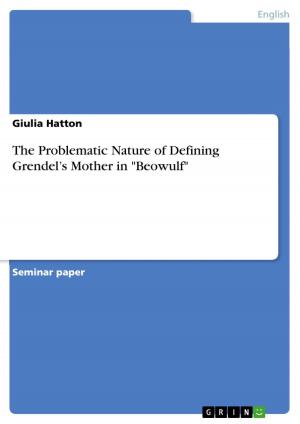Kenya and its efforts on democratization and good governance
Nonfiction, Social & Cultural Studies, Social Science| Author: | Claudia Draemann | ISBN: | 9783638009928 |
| Publisher: | GRIN Verlag | Publication: | February 25, 2008 |
| Imprint: | GRIN Verlag | Language: | English |
| Author: | Claudia Draemann |
| ISBN: | 9783638009928 |
| Publisher: | GRIN Verlag |
| Publication: | February 25, 2008 |
| Imprint: | GRIN Verlag |
| Language: | English |
Seminar paper from the year 2006 in the subject Politics - International Politics - Topic: Development Politics, grade: 1,7, University of Marburg (Politikwissenschaften), course: Democratization and Good Governance, 21 entries in the bibliography, language: English, abstract: The UN Human Developing Report 2005 states that Kenya is one of the world's developing countries. The Human Developing Index published in this report specifies that Kenya has a low human development and thus its rank is 154 of 175 UN member states. This raises the question if the government of Kenya has implemented action to improve its development status and what sort of actions this has been. So, first, the status of development in a country must be assessed. After analyzing the data, concrete measures can be implemented. Berg-Schlosser describes in his abstract a bright range of indicators that exist for assessing development processes in a country. He points out that there is an urgent need for indicators which are used as benchmarks in international relations or for decisions for development by the IMF, World Bank and others. Generally, he emphasizes that the interpretation of the indicators must be done carefully. Often there are problems with the proper conceptualization and the operationalization of certain notions. Problems and limitations of such data analysis still remain. After a short introduction in chapter 2 about the important facts of Kenya, this essay tries to figure out in chapter 3 which indicators of democratization and good governance exist and how they asset the Kenyan efforts on these topics in general. The data is visualized in time graphics and a short description of the main aspects is given. Furthermore, chapter 4 describes the current state of development in Kenya regarding the most important key factors.
Seminar paper from the year 2006 in the subject Politics - International Politics - Topic: Development Politics, grade: 1,7, University of Marburg (Politikwissenschaften), course: Democratization and Good Governance, 21 entries in the bibliography, language: English, abstract: The UN Human Developing Report 2005 states that Kenya is one of the world's developing countries. The Human Developing Index published in this report specifies that Kenya has a low human development and thus its rank is 154 of 175 UN member states. This raises the question if the government of Kenya has implemented action to improve its development status and what sort of actions this has been. So, first, the status of development in a country must be assessed. After analyzing the data, concrete measures can be implemented. Berg-Schlosser describes in his abstract a bright range of indicators that exist for assessing development processes in a country. He points out that there is an urgent need for indicators which are used as benchmarks in international relations or for decisions for development by the IMF, World Bank and others. Generally, he emphasizes that the interpretation of the indicators must be done carefully. Often there are problems with the proper conceptualization and the operationalization of certain notions. Problems and limitations of such data analysis still remain. After a short introduction in chapter 2 about the important facts of Kenya, this essay tries to figure out in chapter 3 which indicators of democratization and good governance exist and how they asset the Kenyan efforts on these topics in general. The data is visualized in time graphics and a short description of the main aspects is given. Furthermore, chapter 4 describes the current state of development in Kenya regarding the most important key factors.















